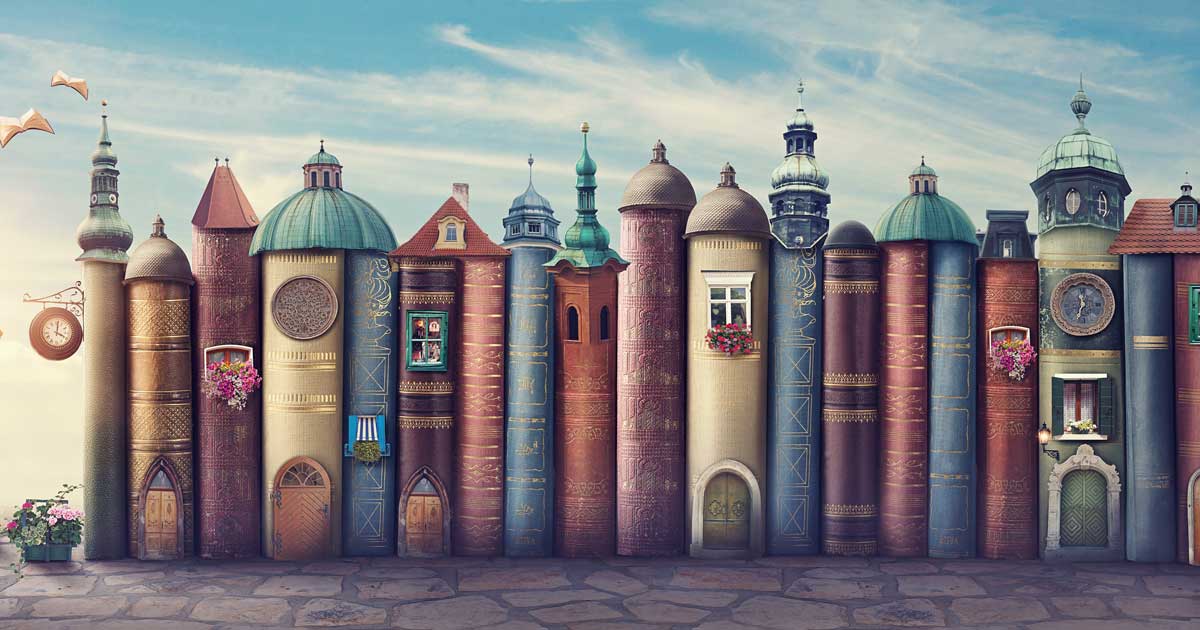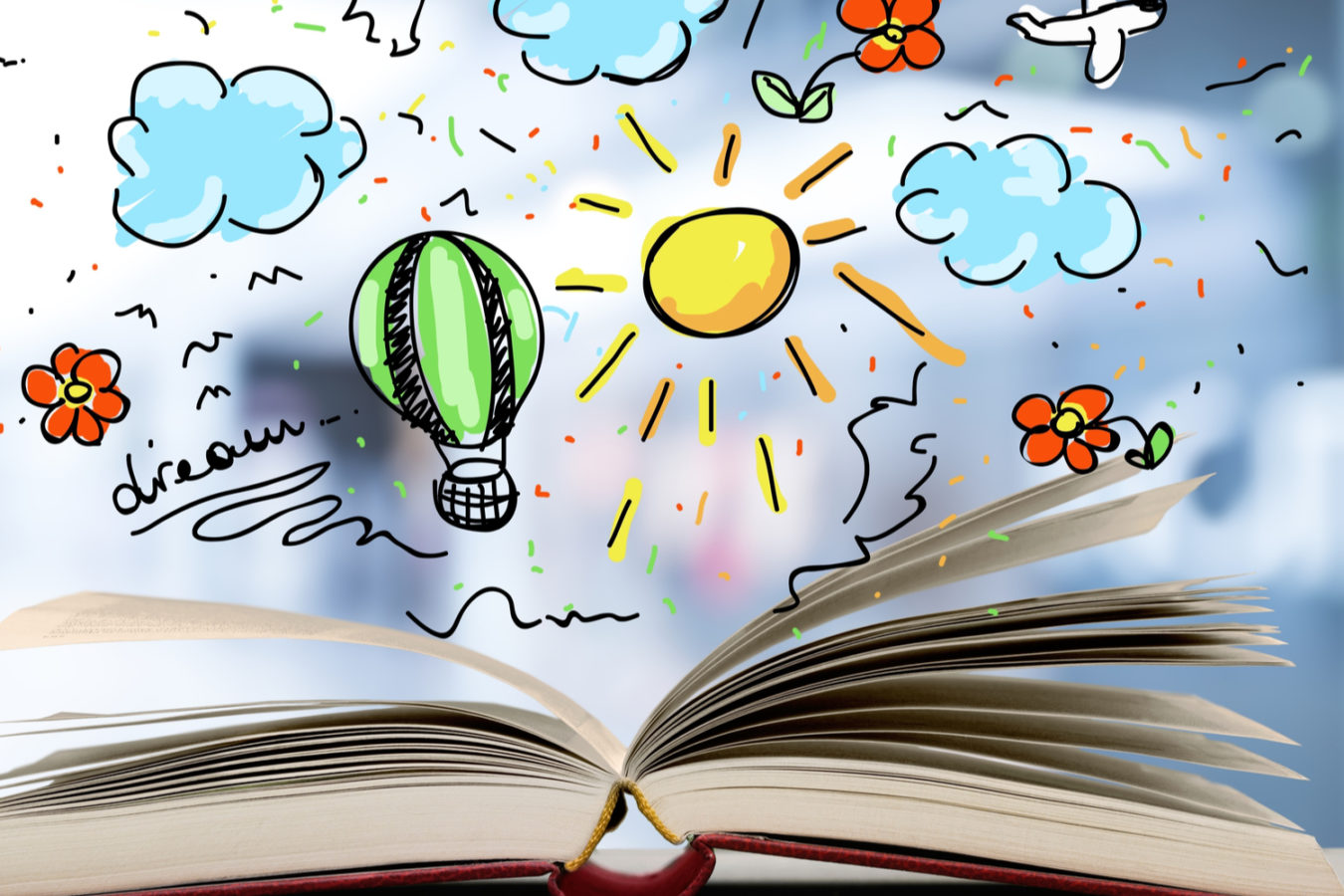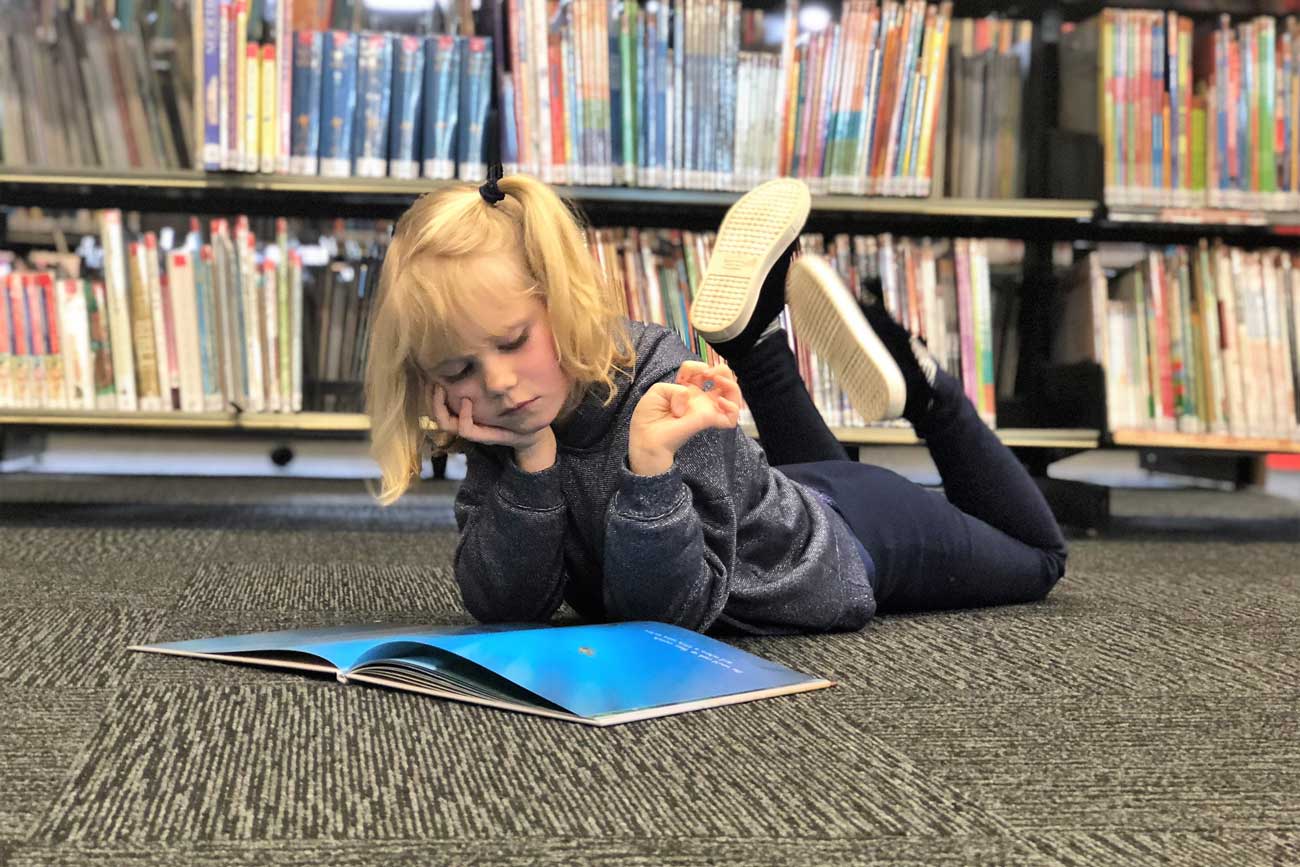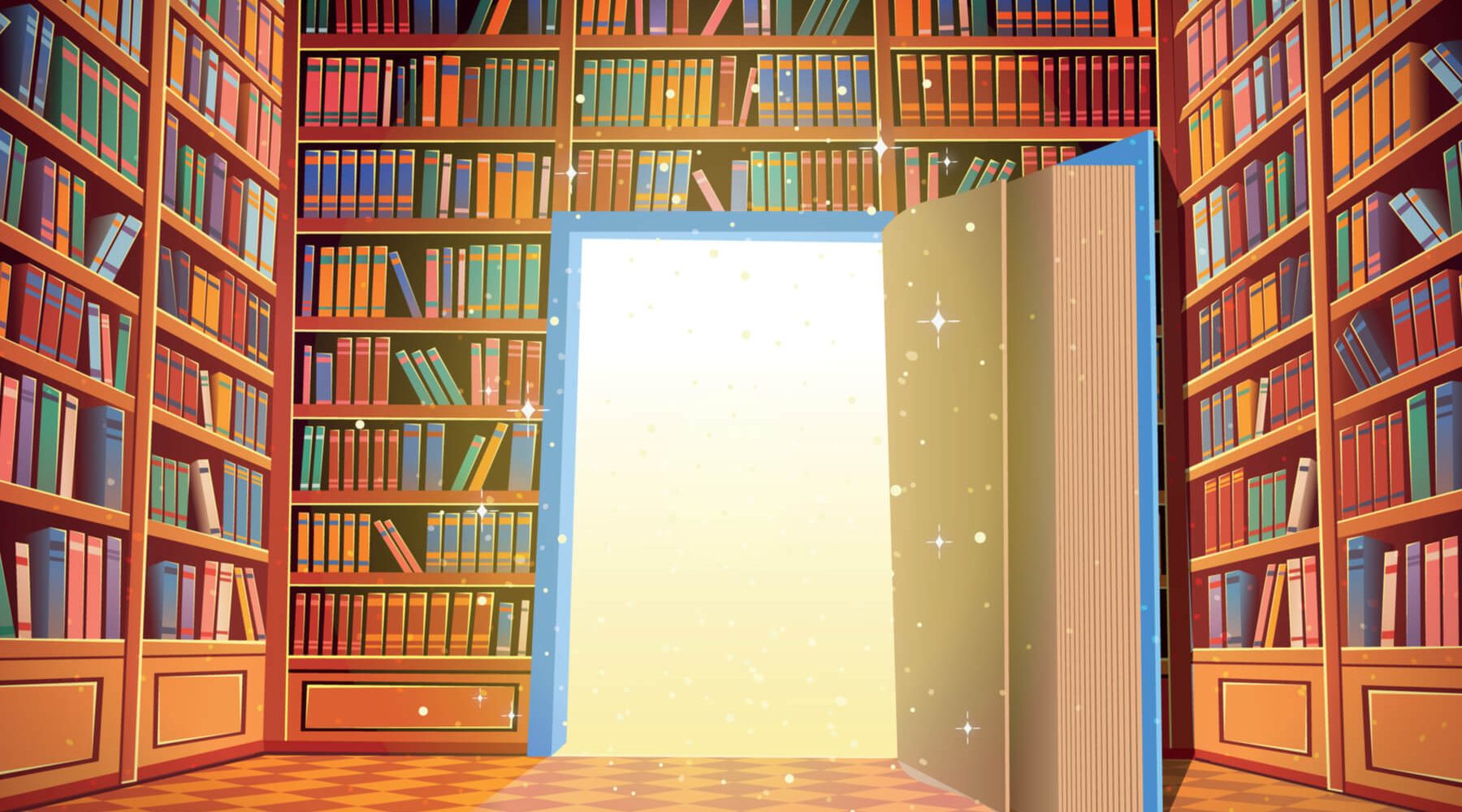
In the digital age when information is everywhere, Michael Broadstock discovers school libraries are more important for students than ever, in this interview with Susan La Marca, from the School Library Association of Victoria.
I was on good terms with all my school librarians when I was growing up, and school libraries were a sanctuary of sorts for me, especially on rainy days. Their shelves were filled with new worlds to escape to: Narnia, Middle Earth, mythic Wales, and a certain small village, circa 50 BC, filled with indomitable Gauls.
Sometimes, entranced by what I was reading, I wouldn’t even hear the school bell – like in Grade 2 when I was so engrossed by the grotesque faces in Ruth Park and Deborah Niland’s When the Wind Changed, that I missed a whole class.
It was in a school library that I learned how to put a needle on an LP without scratching it. Many hours were spent on headphones thereafter, listening to David Bowie, Split Enz, INXS and The Police. This too, led to many missed bells.
They had great non-fiction sections as well, which nurtured a young brain hungry to learn more about the natural world and the universe surrounding it. Carl Sagan and David Attenborough were my heroes.
Libraries are where I discovered many of my passions – where I discovered who I was.
The world has changed since then. Screens and gaming consoles are portable and ubiquitous, we download our songs directly from Spotify (who needs whole albums?) and kids learn more about the world from Google and YouTube than from encyclopedias.
But has the digital totally replaced the smell of print on paper in the hearts of children? I asked School Library Association of Victoria (SLAV) Executive Officer Susan La Marca in a recent isPodcast interview if school libraries are still relevant for the students of today.
Somewhere to get the right information
School libraries today are a bit different to how they were when we were in school, are they still relevant to students in a digital age?
Absolutely. Probably more so than ever, I think.
It’s a bit of a misconception to decide that we have all of the information we need. I think libraries of all kinds are very much about helping us find the right information and helping us find accurate information, helping us understand how to use that information wisely and ethically, and also giving us these wonderful opportunities to immerse ourselves in beautiful books and wonderful reading opportunities.
All of these things happen in libraries. They are amazing places, really exciting places, I think.
We draw information from paper in a different way
Hard copy or digital. Does it matter how kids read?
I think most of us would agree that it doesn’t matter in that a good story is a wonderful thing no matter how it comes to us; it could be audio, it could be an eBook, it can be in old-fashioned paper.
That said, there is quite a deal of research now telling us that we do read in different ways depending on what the platform happens to be so that we actually take information from paper in a different way than we do if we read it on an eBook reader or if we listen to it in audio.
So, even though a good story is still going to be a good story no matter how we experience it, if we’re actually trying to learn from what we’re reading, and we’re reading for maybe an exam or to study something, there is a place for perhaps reading in different ways.
More than just somewhere to read
What makes school libraries important?
They’re a place in a school that is inclusive, a place that’s open to everybody, a place that supports learning of all kinds, and also a space that welcomes people in all kinds of situations.
I don’t think there’s any other place in a school quite like a school library, and I think that’s what makes them important. They’re not just about information and reading, they’re about experiences, they’re about learning of all kinds. Nowadays, they’re often the centre of celebrations and all different kinds of clubs and experiences, places to meet people and interact and make things.
So, I think they are lots of different things to lots of different people. And that’s what’s also exciting about them, the fact that they can be all of these things, they’re often the only big open space in a school. And I think that’s a really important thing.
And nowadays we’re seeing them, I think, as a place that supports wellbeing as well, all kinds of other elements of what we’re trying to undertake in our education, offering cultural diversity. All different kinds of options in the way we build collections, so they’re all kinds of things.
But they’re also a virtual space nowadays as well, a place where we can access all kinds of information outside of the school building. So, your library is not just a physical space but a virtual one too.
Listen to the podcastAnd school librarians?
And school librarians?
Because we’re wonderful people! (laughs) I think we have a lot of different skills. In any library nowadays you’ll find people of all different kinds of qualifications. Some of them will be teacher-librarians, so they’ll actually have a teaching degree and librarianship qualifications. So, that ability to understand what’s happening in curriculum, but also understand the underpinnings of how we develop collections and curate resources that a librarian’s main role is.
And I think when you’ve got that kind of person in your school library, you’ve got someone that really can help you with all aspects of your studies and all aspects of your learning, and that’s a vital support, I think.
Teachers are busy and they’re time poor, they need that support and so do our students. But in libraries, you’ll also find a range of other staff with other skills, but they’re all there to support you and help you find the right information and the right resource that’s going to help you no matter what it is you’re looking for, and that’s important.
In a time when we have so much stuff bombarding us, it’s often really difficult to find the right thing.
A chance for students to talk about the books they love
Tell us about SLAV’s new project, ShelfTalkers
Shelftalkers is a website and it’s been developed by the School Library Association of Victoria. Its main aim is to provide a space where students can submit reviews, have them published. We’re enabling them to have a voice, to have a say in what they read and to share that opinion and that idea with others. So, it really was established for that idea predominantly to give students a place where they can have their voices heard and share them with other people.
We ultimately want it to be something that school librarians and English teachers, all different members of the school community could also share with their students so that they can see the opinions of others.
We’re very interested in the ways we build a reading culture in schools and beyond. And this is a way, I suppose, of allowing schools to show their students the opinions of others outside.
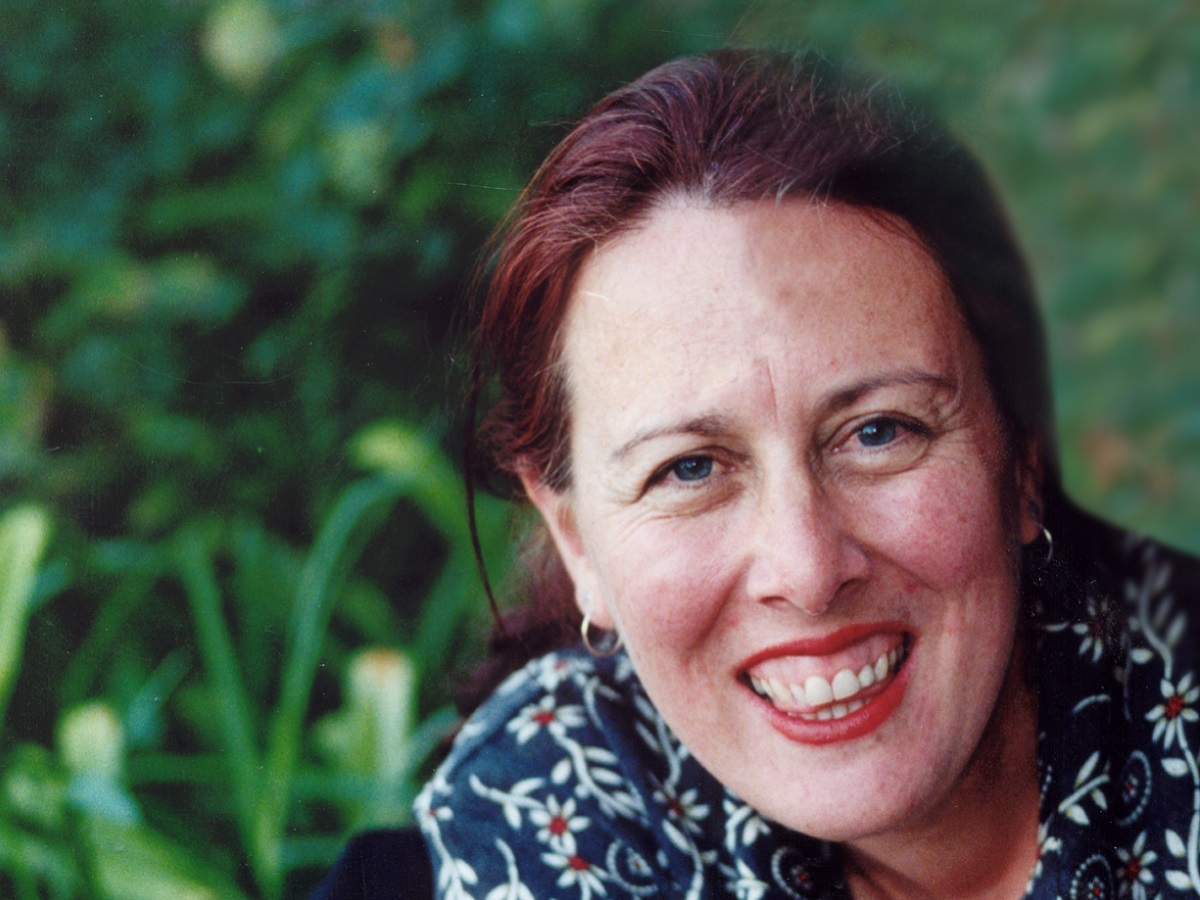
Susan La Marca, Executive Officer of the School Library Association of Victoria.
This is an edited extract of an interview that first appeared on isPodcast, an Independent Schools Victoria audio program for schools and the wider community.
The Shelftalkers student book reviews program is available to SLAV members. Students at participating schools can submit reviews through their school librarian.
Like this post? Please share using the buttons on this page.
Subscribe to The Parents Website